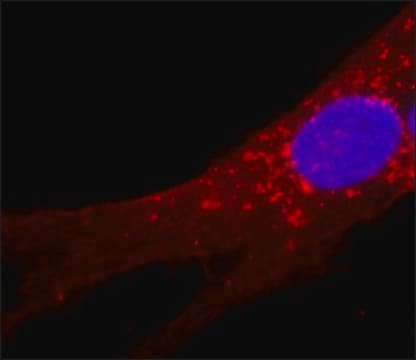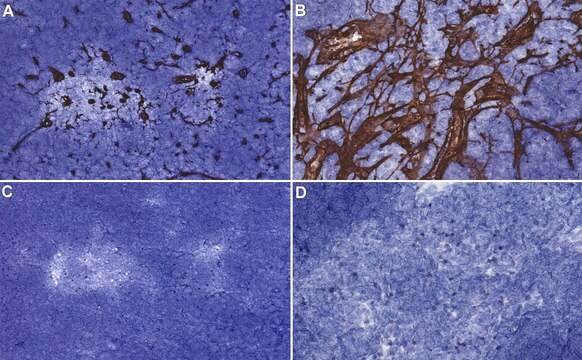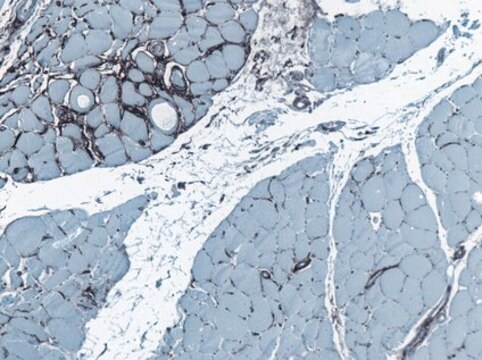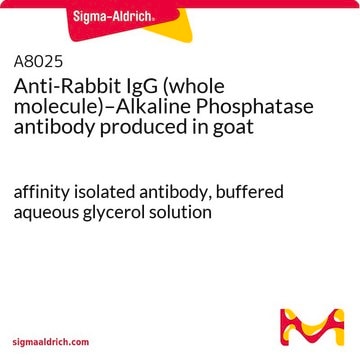SAB4200821
Anti-Fibroblast Surface Protein antibody, Mouse monoclonal
clone 1B10, purified from hybridoma cell culture
Sinónimos:
FSP
About This Item
Productos recomendados
biological source
mouse
antibody form
purified from hybridoma cell culture
antibody product type
primary antibodies
clone
1B10, monoclonal
species reactivity
human
packaging
antibody small pack of 25 μL
concentration
~ 1 mg/mL
technique(s)
immunofluorescence: 5-10 μg/mL using Human foreskin fibroblast Hs68 cells.
isotype
IgM
shipped in
dry ice
storage temp.
−20°C
target post-translational modification
unmodified
Gene Information
human ... S100A4(6275)
General description
Specificity
Immunogen
Application
Biochem/physiol Actions
Physical form
Storage and Stability
Disclaimer
¿No encuentra el producto adecuado?
Pruebe nuestro Herramienta de selección de productos.
Optional
Storage Class
12 - Non Combustible Liquids
wgk_germany
nwg
flash_point_f
Not applicable
flash_point_c
Not applicable
Certificados de análisis (COA)
Busque Certificados de análisis (COA) introduciendo el número de lote del producto. Los números de lote se encuentran en la etiqueta del producto después de las palabras «Lot» o «Batch»
¿Ya tiene este producto?
Encuentre la documentación para los productos que ha comprado recientemente en la Biblioteca de documentos.
Nuestro equipo de científicos tiene experiencia en todas las áreas de investigación: Ciencias de la vida, Ciencia de los materiales, Síntesis química, Cromatografía, Analítica y muchas otras.
Póngase en contacto con el Servicio técnico








